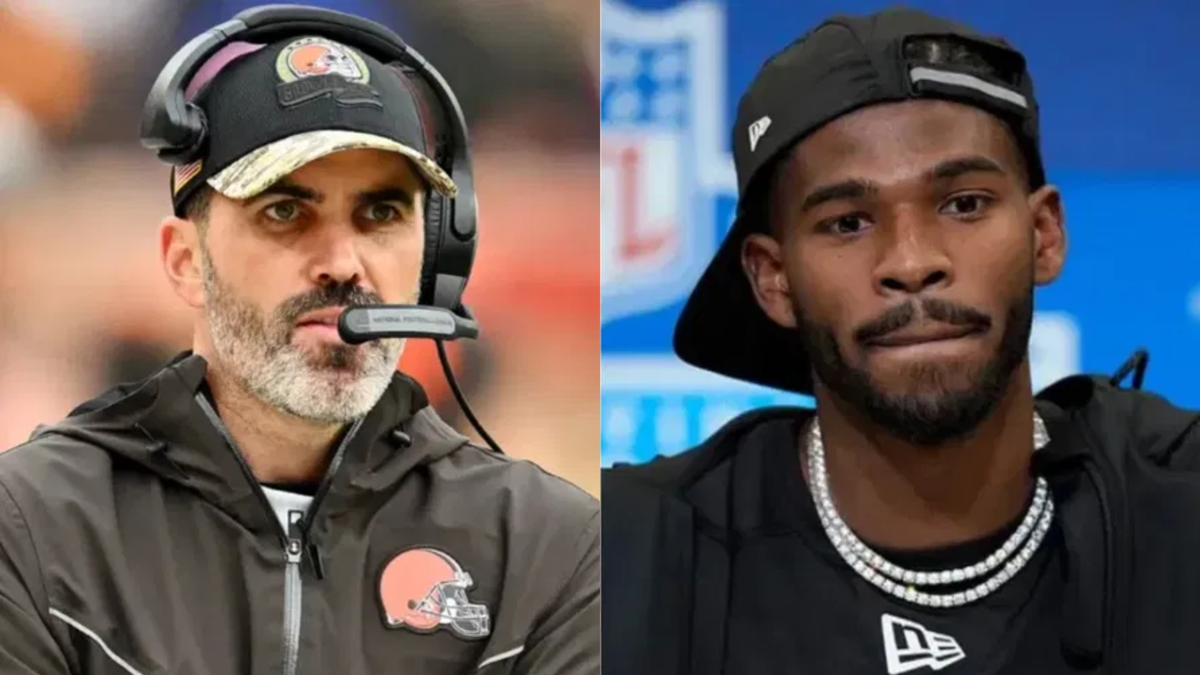
Imago
Image Credits: Imago

Imago
Image Credits: Imago
“It’s such an all-encompassing evaluation,” Browns HC Kevin Stefanski stated while addressing his decision to name Dillon Gabriel as the backup. The rookie showed consistency in passing, and his prior experience with a speedy offense made the resolution much easier. During his tenure with the Ducks, Gabriel successfully fit into OC Will Stein’s high-tempo offensive schemes, and that seems to have been part of the reason why he got the backup job in Cleveland. But NFL Films’ guru Greg Cosell believes there is more to it.
Watch What’s Trending Now!
During his appearance on the ‘Ross Tucker Podcast’, he said, “He [Dillon Gabriel] fits Kevin Stefanski… Kevin Stefanski really liked him coming out because of the way in which he plays. Gabriel is purely a timing rhythm player. Stylistically, you’d say he’s similar to Tua Tagovailoa.” That’s an interesting comparison.
If injury concerns are pushed aside, Tagovailoa put up good numbers: recorded over 15,000 passing yards with a 68.1% completion rate to go with 100 touchdowns and 44 interceptions. But he is also considered a Tier 3 QB. “He hits the back foot, the ball comes out, and that’s the way Kevin Stefanski sees his offense… He sees Gabriel as the kind of Quarterback that can efficiently run what he wants to do, it’s all about timing and rhythm, and that’s the way in which Gabriel plays. Obviously, he is under 6ft; he is not big. His arm is a little better than people might think. He does have enough mobility,” Cosell added.
ADVERTISEMENT
But such comparisons to Tagovailoa are not new. After all, as an undersized QB, such connections are inevitable, especially since their playing style looks similar. The similarities were striking enough for fans and media to speculate that the Dolphins would select Gabriel in the NFL draft, have him join Tagovailoa, and eventually push him as the starter. That, of course, didn’t happen.
In fact, in February, Gabriel made it clear that he was not Tagovailoa 2.0. Although he acknowledged the similarities, such as being left-handed, he also felt that they approached certain aspects differently. One differentiator would be Gabriel’s better scrambling ability.
Though he broke Tagovailoa’s Hawaii high school career passing yardage record, Tagovailoa entered the NFL as a far more accomplished passer.
ADVERTISEMENT
“Kevin Stefanski REALLY liked him coming out because of the way in which he plays. Gabriel is purely a timing rhythm player. Stylistically, you’d say he’s similar to Tua Tagovailoa.” @GregCosell breaks down Browns QB2 Dillon Gabriel: pic.twitter.com/ujY5gQONAl
— Ross Tucker Podcast (@RossTuckerPod) September 1, 2025
Cleveland is chasing metronomic efficiency. Gabriel, who went 25 of 37 for 272 yards with one TD and one INT this preseason, embodied that. On the other hand, Sanders, who racked up 17 of 29 for 152 yards, 2 TDs, and 0 interceptions, may not have. Gabriel is the reliable plug-and-play option who understands the assignment: execute the play as drawn. This brings us to Sanders, the fifth-round pick whose preseason was a tale of two games.
ADVERTISEMENT
Huge changes for Shedeur Sanders?
After a promising debut against the Panthers that featured two touchdown passes, the finale against the Los Angeles Rams was a brutal reality check. In a few series against the Rams, Sanders managed just 14 yards, took five sacks, and fumbled. The box score was ugly. But the evaluation from those who studied Sanders at Colorado held true in the NFL preseason. He has a tendency to drift, to hunt for the big play when the simple, timed throw is available.
That evening, four of the five sacks were not on the offensive line, but on him specifically. Most of the sacks he took were glaring. It’s the antithesis of everything Stefanski prizes. The contrast with Gabriel in the same game was stark. Where Sanders held the ball, Gabriel was decisive. Where Sanders drifted, Gabriel planted and fired. It was a live-action demonstration of why one is the backup and the other is now the emergency QB3. Sanders’ challenge is monumental. He must trade the desire to create for the discipline to execute.
ADVERTISEMENT
The good news is the Browns believe in his work ethic and the coaching staff’s ability to teach him. His spot on the 53-man roster is a testament to the belief in his potential. But potential must eventually translate to performance within the system. For Shedeur Sanders, the future in Cleveland depends on his willingness to quiet the song of chaos and learn the value of a simple, rhythmic beat.
Top Stories
Caleb Williams Puts Locker Room on Notice After Rams Publicly Announce Bears QB’s Weakness
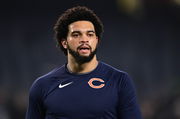
Andy Reid Gets Unfortunate Update on Chiefs’ Veteran Coach’s Retirement After Announcing Double Firing
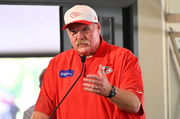
Russell Wilson Announces New Citizenship Plans Away From America as Giants QB Makes Career Decision
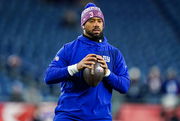
“Giving People Cancer”: Ex-49ers Star Speaks Up Against Training Facility Controversy as Kyle Shanahan’s Future Plans Threatened
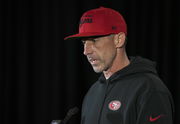
Browns Make Double Announcement on Kevin Stefanski Replacement as Shedeur Sanders Plays Deciding Factor
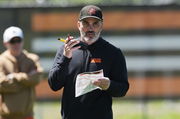
ADVERTISEMENT
ADVERTISEMENT
ADVERTISEMENT

